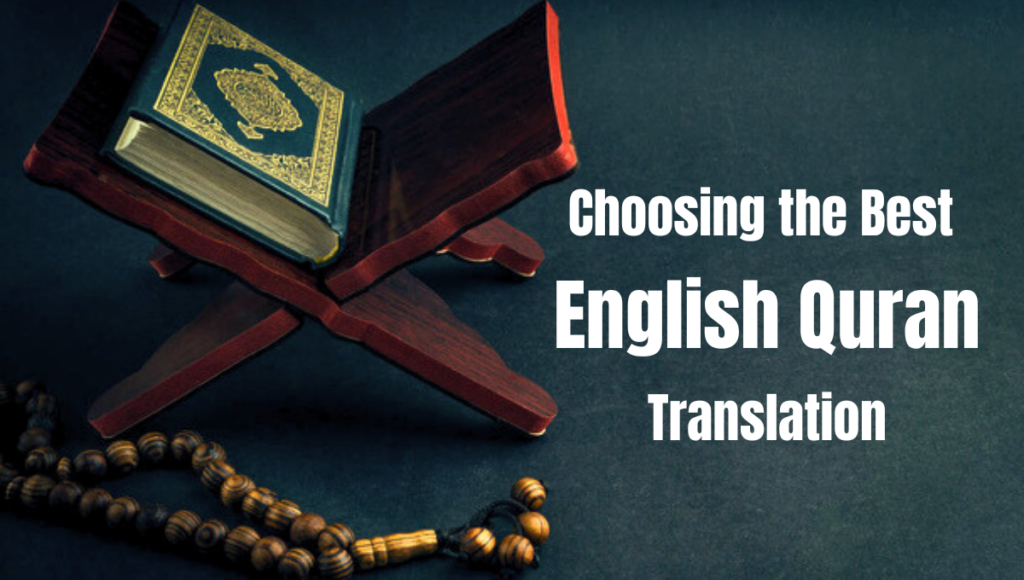The Holy Quran is the central sacred text of Islam, revered by Muslims as the infallible word of God. As the Quran was revealed in Arabic, translations into other languages are vital for enabling non-Arabic speakers to understand and connect with God’s message. With many English Quran Translation available, it can be difficult to determine which is the most accurate and authentic for study and reflection.
Qualities of the Best English Quran Translations
When evaluating English translations of the Holy Quran, there are certain key qualities to look for:
- Precision – The translation should accurately and clearly convey the meaning of the original Arabic without distortion or ambiguity.
- Readability – It should use accessible English, avoiding archaic or overly academic language.
- Mainstream Interpretation – The translation should reflect traditional scholarly consensus on the interpretation of verses.
- Respectful Tone – The language and style should preserve the sacred nature of the text.
- Inclusion of Arabic Terms – Important Islamic words should be untranslated but explained.
- Supplementary Material – Useful introductions, footnotes and explanations should be included without interruption.
- Flow – The translation should seek to retain some of the rhetorical eloquence and poetic flow of the Arabic.
Most Popular English Translations
Among the many complete English translations of the Quran, these five are considered to most successfully combine accuracy with accessibility:
Saheeh International
First published in 1997, this contemporary translation is written in very clear and readable English that remains faithful to the original. It is a very popular translation among English-speaking Muslims.
Muhammad Asad
First published in 1980, this translation uses elegant English to convey both the precise meaning as well as some of the rhetorical power of the Arabic. It includes helpful footnotes and commentary.
Yusuf Ali
This landmark translation first published in 1934 is written in a slightly archaic but beautiful English. It seeks to mimic some of the poetic qualities of the Arabic through rhyming verse. Contains extensive commentary.
Pickthall
Published in 1930, this very literal translation sought to capture the exact meaning of the Arabic at the expense of readability and flow. The respectful Biblical-style English gives the text an antiquated but solemn air.
Abdel Haleem
First published in 2004, this recent translation is very readable and coherent while still being faithful to the original. The clear modern English makes it popular for contemporary audiences and study.
Benefits of the Best English Translations
Good English translations of the Holy Quran provide many benefits for Muslims and those interested in Islam:
- Allow full comprehension of the wisdom and message of God for non-Arabic readers.
- Facilitate deeper study and reflection upon sacred scripture.
- Aid in accurate memorization and recitation.
- Help convey the beauty and poetry contained within the Arabic text.
- Allow scholars to cross-reference multiple translations for richer Quranic exegesis.
- Make citing passages of the Quran easier in English books, articles and speeches.
- Help preserve the teachings for future generations as cultural contexts shift.
- Build bridges of interfaith understanding by making text accessible to all.
- Enable even non-Muslims to access the majesty and profundity of Holy Quran.
Supplementary Resources to Enhance Study
In addition to the translation itself, excellent resources to further illuminate study of the English Quran include:
- Tafsir – Books providing scholarly Quranic exegesis and commentary.
- Subject Indexes – Indexes classifying verses by theme for topical study.
- Concordances – Books listing where specific words/roots appear in the text.
- Word-for-word Translations – Breaking the Arabic down to literal word meanings.
- Recitation Audio – CDs/apps allowing listening to skilled Quranic recitation.
- Background Material – Books on history, contexts and linguistic aspects.
- Study Guides – Structured guides with reading schedules, questions and assignments.
- Searchable Apps/Websites – Allowing key word searches and flexible study.
Handling an English Quran Respectfully
Though not considered sacred itself like the Arabic Quran, it remains important to treat an English translation of the Holy Book with care and respect:
- Avoid placing it on the floor or contaminating the pages.
- Use a clean cloth or gloves when directly handling the book.
- Do not write or highlight the text. Use bookmarks or separate notes.
- Dispose of worn copies respectfully by burial, shredding or burning.
- Store away from direct sunlight and Slocum that could damage pages.
- Treat the text solemnly; do not leave open casually or mishandle.
- Purify oneself and read with concentration, humility and sincerity.
Finding a translation both accurate and eloquent is key to profoundly engaging with the Holy Quran in English. Study and contemplation of God’s words is deeply enriched by supplemental resources and handling the text with appropriate etiquette. For non-Arabic speakers, a good English translation is a precious gateway to the magnificence of the Divine message.


